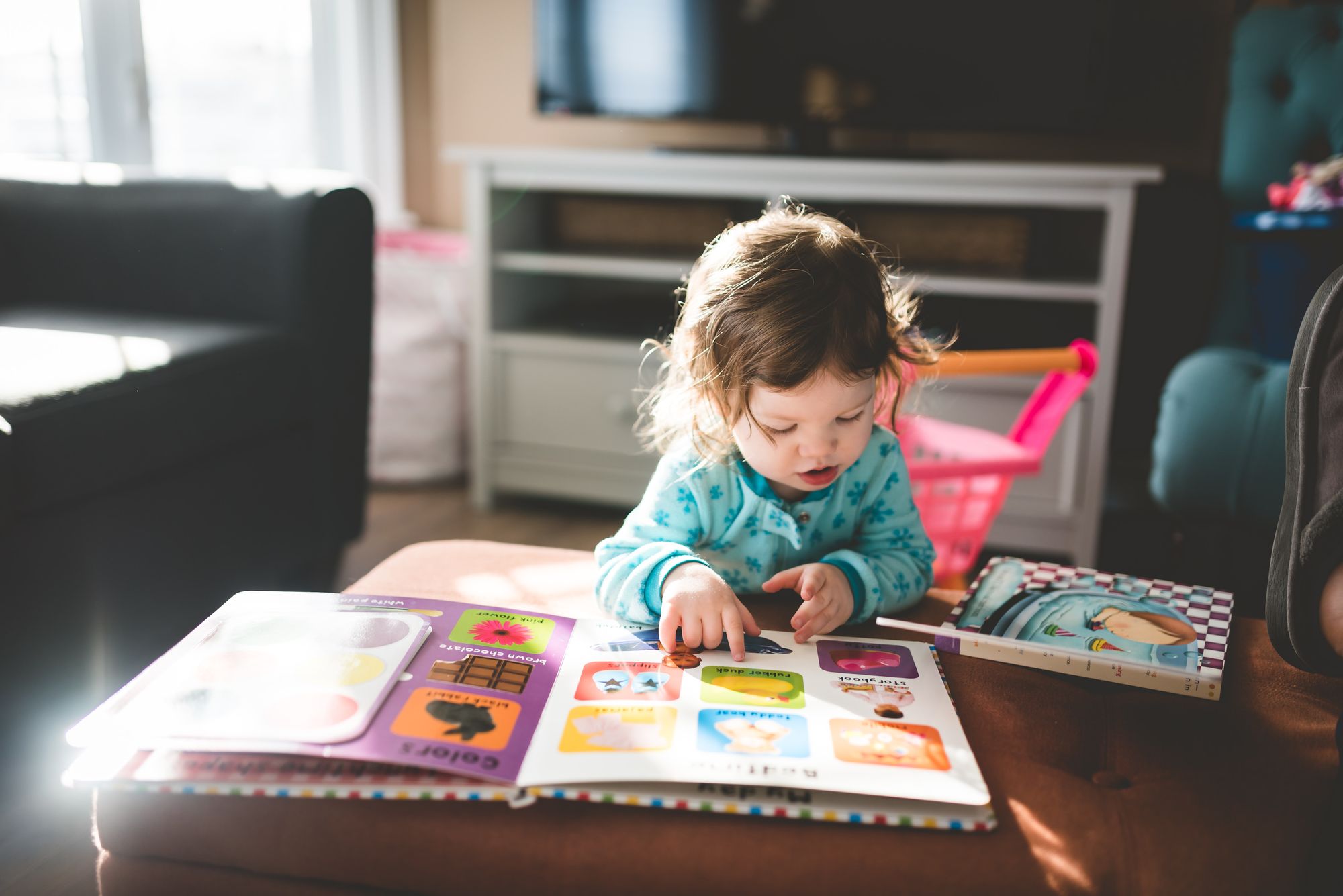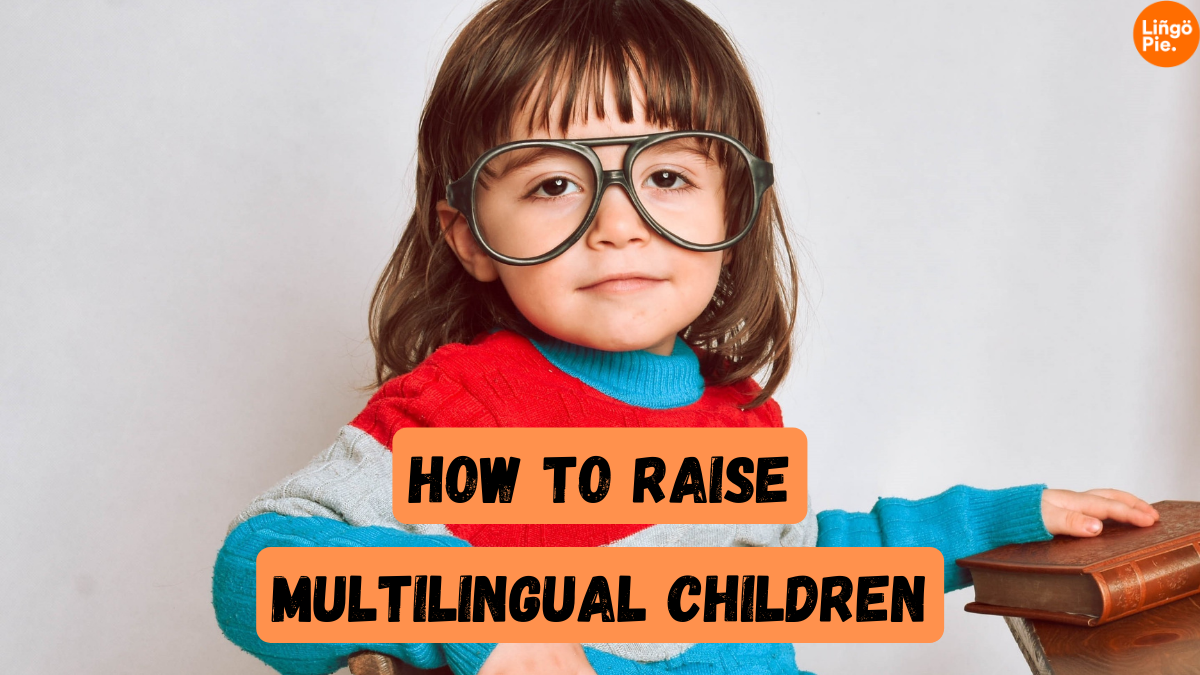If you are thinking of raising children with more than one language, this is your comprehensive guide on how best to do so.
We will provide 5 top tips for raising multilingual children, such as the "one parent, one language" technique and engaging with content in their minority language.
We will then explore the advantages of speaking two or more languages, covering improved developmental psychology and job and travel opportunities.
Raising a bilingual or multilingual child has many benefits and no downsides, so get inspired by this guide and give your child the best gift you can give them!
What Does It Mean to Be Multilingual?
The definition of multilingual is speaking more than one language. Whether you speak two or all of the world's languages, you are multilingual. Bilingual refers to speaking two languages and trilingual refers to speaking three languages.
By contrast, monolingual children only speak one language. Multilingual children, who speak two or more languages, tend to have greater executive function than their monolingual peers. This is key to academic success, and multilingual children generally perform better academically than monolingual children.

How to Raise Multilingual Children: 5 Top Tips
If you are looking for effective ways to teach your own language to your child in a country where it is not the majority language, or to ensure your child gets language exposure for bilingual development, these tips will focus your efforts.
1. Benefit Your Child if You Are Multilingual Parents
The simplest way a child can learn to speak more than one language is if their parents speak a foreign language. This way, the child speaks a community language at home and with extended family, whilst speaking the local language at school.
If you and your partner both have a foreign heritage language that you want to teach your child, you can try the "one person, one language" technique, also called "one parent, one language".
This is when one parent consistently speaks only one of the two languages to their child. Let's say you speak Russian, your partner speaks French, and you live in an English-speaking country. You will speak to your child only in the Russian language, and your partner only in French. This should result in your child speaking both.
2. Use Foreign Language Schools
Another great way to get your children to speak different languages is to send them to a foreign language school. Some schools teach lessons in different languages or have a mandatory second language that is taught at every age level.
Immersive and regular language exposure like this is one of the best ways to get a child to start speaking two languages and naturally develop their language acquisition.
Children's language development can be fairly rapid. A child's vocabulary and proficiency will naturally develop as they are immersed in the language.
Language learning in a school environment ensures children learn grammar as well as vocabulary, giving them a deeper and more academic understanding of the different languages that they speak.
Learning languages at school can shape the rest of a child's life. Not only does it open many doors to bilingual children, but it also helps them to understand their own language better.
3. Make Use of Content in a Second Language
Engage with books, movies, and music in your child's minority language. This is an excellent way to expose children to new vocabulary and accents in another language.
You can also tell stories in your heritage language at bedtime. Your child will sleep and retain some of the new language that they have heard.
Additionally, use resources online such as Lingopie. This is a streaming service where you can find TV shows and movies in other languages. The site offers interactive dual subtitles, digital flashcards for vocabulary development, and quizzes.

Second language acquisition is possible if your child is exposed from a young age and has access to native speakers of the second language. TV shows, series, and movies alone will not teach a child a different language, but they are fantastic learning tools used in conjunction with personal interaction.
See also: 8 Best Kids' Cartoons For Learning Spanish
4. Play Games in Different Languages
While children will lean toward playing games in their preferred language, it can be great for bilingual development to incorporate games in their second language into their free time. This could be a card game, a word game, or role-playing in the other language.
This is another engaging and fun approach to language acquisition and vocabulary development. Natural and entertaining language exposure is the most valuable tool for language learning a child has.
If a child shies away from speaking their mother's language, this language could be the focus of games at home. This tactic will make the language more accessible and give it positive associations.
Language exposure while having fun is vital for language learning and a child's feelings toward their home language.
5. Move Overseas
If you only speak the majority language in your country, but you want to raise bilingual children, the easiest way to achieve this is to take your children to a country in which a different language is spoken.
This way, they will be immersed in the new language at school, in the community, and with the TV and music content around them. The new dominant language in their life will be the local native language and they will acquire this language through exposure.
When choosing which new language you would like your child to learn, it is important to consider the usefulness of the language. Is it spoken in just one country or many? Is it highly sought-after in the world of work, and does it put your child in touch with their cultural background?
These are questions you should ask yourself when you plan for your child to learn more than one language.
Raising A Multilingual Child: The Benefits
Much Easier to Learn a Language as a Child
One of the perks of raising kids to speak more than one language is that they will absorb the language much more easily than if they tried to learn as an adult. This saves a lot of time, effort, and money on second language acquisition in adulthood.
When children learn a language, they associate words with their meaning and do not delve into the complexities of grammar or punctuation, making the process simpler.
Moreover, they are less self-conscious than adults while learning and they are built to absorb information in a way that adults and older children are not.

Developmental Psychology
When children speak two or more languages, they tend to have improved cognitive development. This means they will be better at problem-solving, have more advanced memory skills, and have a greater ability to focus on tasks and switch between tasks.
What's more, having these improved cognitive abilities will help them with academic achievements in other fields.
Bilingual children also generally have better cultural awareness than monolingual children, due to their exposure to different societies, traditions, norms, values, beliefs, and people.
Finally, as you age, it is beneficial to be bilingual as it is thought to delay the onset of dementia in the brain.
Check out: 7 Main Benefits of Language Learning
Job and Travel Opportunities
Multilingual children will have more opportunities to study, work, and travel overseas than their monolingual friends. This is because it is a great asset in the job market, a requirement for some volunteer or study programs abroad, and an advantage when traveling independently.
It can also be beneficial for getting employed in your own country to speak different languages. You could be a translator, interpreter, diplomat, teacher, tour guide, or any other profession suited to polyglots.
Maintaining Your Cultural Identity
If you or your partner have a cultural background different from the country you now reside in, it is a beautiful thing to stay connected to and pass down this heritage to your children.
When the children of migrants can speak the language of their heritage and community, they feel more like a part of the community and connected to their roots.
Moreover, some languages are in danger of becoming dead languages, and passing them on can keep them alive. A culture can die when its language is lost, and this is a tragic thing.
Raising Multilingual Children: Are There Any Downsides?
Some parents do not like the idea of their children speaking a language that they don't speak. There are ways around this: you can learn your partner's language if they wish to teach it to your children, or you can speak your own language with your child and remind yourself of the overwhelming advantages of having bilingual children.
Sometimes babies that are being raised with multiple languages begin to speak later than their monolingual peers. This can be a concern for parents. However, this is not a developmental issue. Often, multilingual children will say their first words a little later, but then begin to speak in both languages simultaneously.
As a child learns their home language from family members, sometimes they can have gaps in their knowledge of grammar. However, this can be remedied by engaging with more literature as they grow up.
In short, there really are no downsides to raising multilingual children.
FAQs: Raising Children Who Speak More than One Language
What impacts children's language development?
There are factors that will impact your children's language development, including the quality and quantity of exposure to the second language and the encouragement the child receives.
Quality interaction with attentive adults is paramount for language acquisition. They cannot learn from watching foreign language TV alone. Speak to your child in their minority language as often as you can. Engage them with your home language and use this language for play.
Does learning a new language make children forget their native language?
No, learning a second language will not make your child forget their mother tongue. Sometimes bilingual children and adults will mix languages when they speak, an action that is called code-switching. Code-switching is a sign of proficiency, according to linguists.
An example of code-switching is when you speak Spanish and English, and you use the two languages in one sentence. This is colloquially referred to as Spanglish.
Can you raise trilingual children?
Yes, you can raise trilingual children if they are exposed to native speakers of three foreign languages from a young age. As we have said, quality and quantity of exposure are important. It is certainly doable to raise a trilingual child - and what a gift to them it is!
You can find a lot of general advice online about adding a new language to your child's repertoire and how best to support their language development.
What are the main benefits of multilingual language development?
There are too many benefits of multilingual language development to list, but some of the most significant include being able to speak to family members from other countries, preserving your family's cultural identity, and having more opportunities for travel and work than monolingual peers.
A multilingual child has a better chance at academic achievement and greater cognitive function than a child who speaks just one language. It is clear that speaking a different language is a significant advantage.

Summing Up: Raising Multilingual Children
So, there we have it. This has been a comprehensive guide on how to raise multilingual children.
In this post, we have provided a list of 5 great ways to raise multilingual children, including the "one parent, one language approach" and moving overseas for optimum new language exposure.
Moreover, we have explored the benefits of raising bilingual children, such as improved developmental psychology, job, and work opportunities, and preservation of their heritage language.
There really are no downsides to having multilingual children. Remember, if you are looking for content in your child's other language, check out Lingopie.
Lingopie is a streaming platform filled with content and it is proven to help you learn a language. Sign up for a 7-day free trial to access TV shows, music videos, and movies in multiple languages.






![5 Official Spanish Language Tests To Show Your Proficiency Level [Guide]](/blog/content/images/size/w300/2025/06/Spanish-Language-Tests.jpg)
![Why Memorizing Spanish Words Won’t Make You Fluent [Tips]](/blog/content/images/size/w300/2025/06/how-to-practice-spanish-vocabulary.jpg)
![How to Improve Your Polish Conversation Skills [5 Best Tips]](/blog/content/images/size/w300/2025/06/improve-polish-conversation-skills.jpg)
